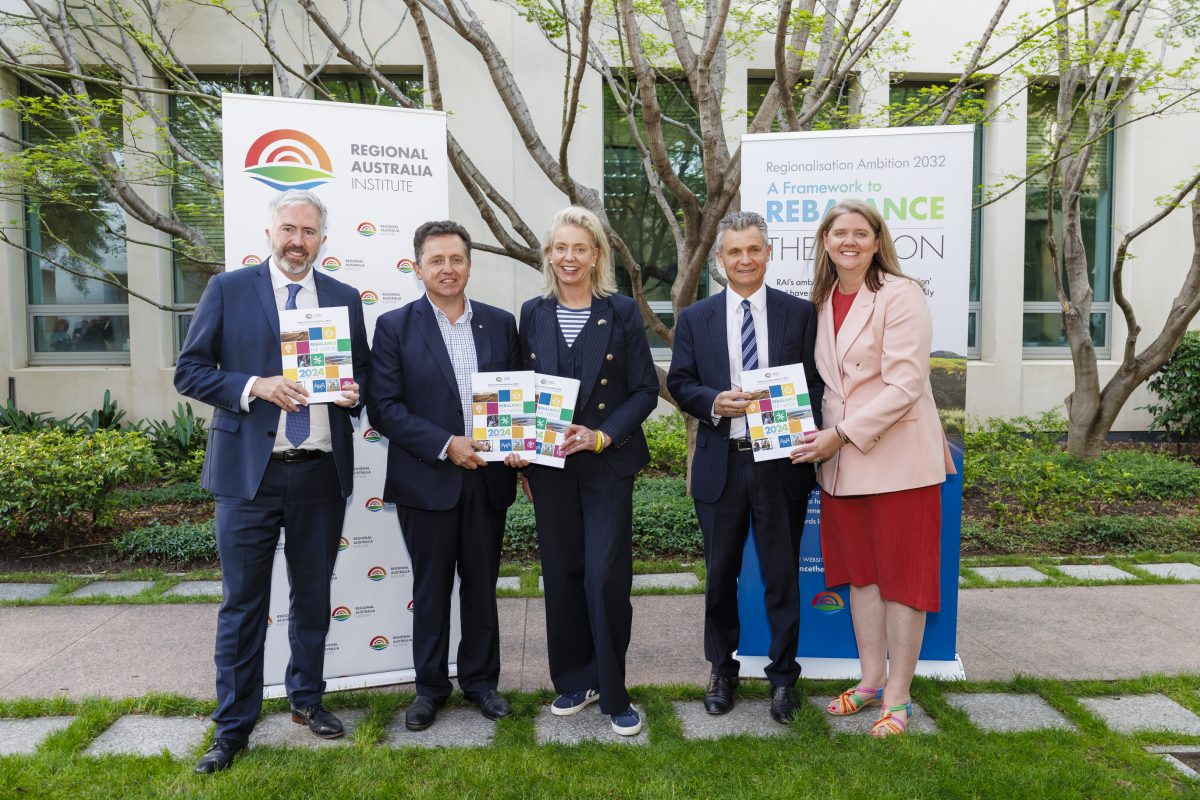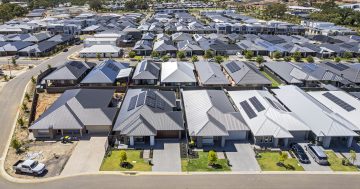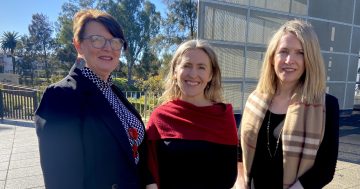
RAI’s Regionalisation Ambition 2032 promises a ‘Framework to Rebalance the Nation’. Photo: Supplied.
A new report from the Regional Australia Institute (RAI) shows urban flight is on the rise as city slickers weigh up a move out of the nation’s capital cities.
Griffith Council’s State of Our City Report 2022-24 revealed a net loss to the population of 1081 and a decline in tourism numbers, which is at odds with the RAI’s data that shows that the number of city dwellers looking to relocate to the regions has doubled over the past 18 months.
Their nationwide survey revealed that a whopping 40 per cent of residents in capital cities are weighing up a sea/tree change – up from 20 per cent in May 2023.
RAI CEO Liz Ritchie said regional infrastructure and real estate needed to be a national priority.
“Demand for regional living has never been higher, but as a nation, we are not keeping pace with delivering the fundamental building blocks that are needed as we rebalance the nation,” Ms Ritchie said.
“Regional Australia is simultaneously experiencing two unprecedented transformations – a once-in-a-lifetime population shift and the net zero transition, which is increasing demand and need for improved services and infrastructure in regional communities.”
Ms Ritchie said the increasing demand weighed poorly against key regional metrics tracking housing, education and migration.
Over the past 12 months rental vacancies and building approvals have declined along with education numbers and migrants choosing to settle in the regions.
“Falling behind on critical targets is not in the nation’s best interests and we can’t afford to squander this opportunity to better our country,” Ms Ritchie said.
“Many regions are already struggling with housing, particularly rental markets, and until region-specific policy measures are put in place, this will only be further magnified.”
Like many of the regional centres examined by the RAI, Griffith’s State of Our City report also highlighted a lack of affordable housing options, aging infrastructure and the rising cost of living as looming challenges for the city along with the need for workers and the retention of the younger generations.

A lack of housing and a slowing of development application approvals are a problem for regional growth. Photo: File.
Ms Ritchie said there were more than 70,000 jobs available across regional Australia and that employers were crying out for workers.
“We know migrants can help fill these roles. However, fewer overseas arrivals are ending up in our regional communities and that needs to change,” Ms Ritchie said.
“In addition, the gaps are widening between metropolitan and regional students when it comes to education. This is deeply concerning given we know the jobs of the future will require more post-school qualifications.”
On the plus side, RAI’s Regionalisation Ambition 2032 progress report showed positive improvements in recruitment, the number of doctors working in the regions and an increase in the youth population.
“Without continued improvements on measures around housing, education and migration there would continue to be a challenge for any government to play catch up,” Ms Ritchie said.
“The RAI is calling for a long-term plan for regional Australia’s future that considers population movement, the skilled workforce requirement, service provision and infrastructure needs. Given Australia’s changing population pattern, this is vitally important.
“A place-based decision-making model, that would enable regions to have a greater say on how federal, state and territory government funding is spent is also critical. There are responses to issues around housing and the attraction of overseas arrivals already underway in regional Australia and they deserve to be heard.”
Original Article published by Chris Roe on Region Riverina.














